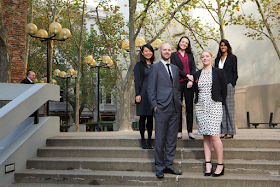Until a toad in fun
Said, "Pray, which leg moves after which?"
This raised her doubts to such a pitch,
She fell exhausted in the ditch
1/ The centipede performs an extremely complex action by coordinating all its legs in the action of movement.
2/ The centipede does not know how it coordinates all its legs, it does not think about it while doing it, but performs the task through habit.
3/ When called upon to think about and discuss how it performs the task, the centipede realises it does not know, becomes confused, and can no longer perform the task.
Habit diminishes and then eliminates the attention required for routine tasks, but this is automatically disrupted by attention to a normally unconscious competence.
In other words:
1/ You have learned through habit to perform what might be a somewhat difficult task without thinking about it.
2/ You are then called upon to consider and think about how you perform the task.
3/ By thinking about how you perform the task you can no longer perform it out of habit and you are then unable to perform it.
On the conscious competence learning steps model the performance of a task out of habit is one done with unconscious competence.
The problem is that an explanation or understanding of the skills or mechanism for performing the task has been forgotten so that when someone is called upon to think about or explain how the task is performed they cannot do so and are then unable to perform the task through habit, being thrust into a state of conscious incompetence.
 |
| Adolf Busch forgets how to play a complicated phrase when asked |












































